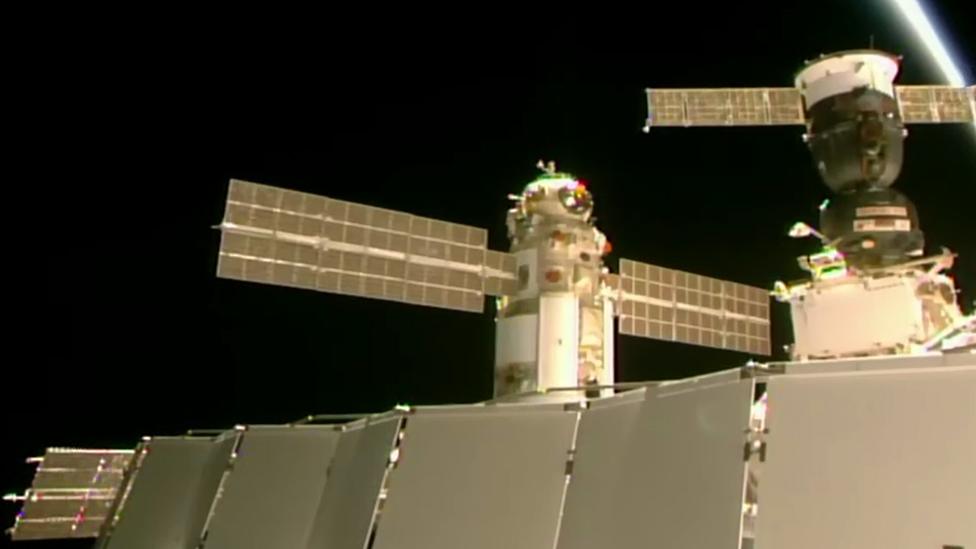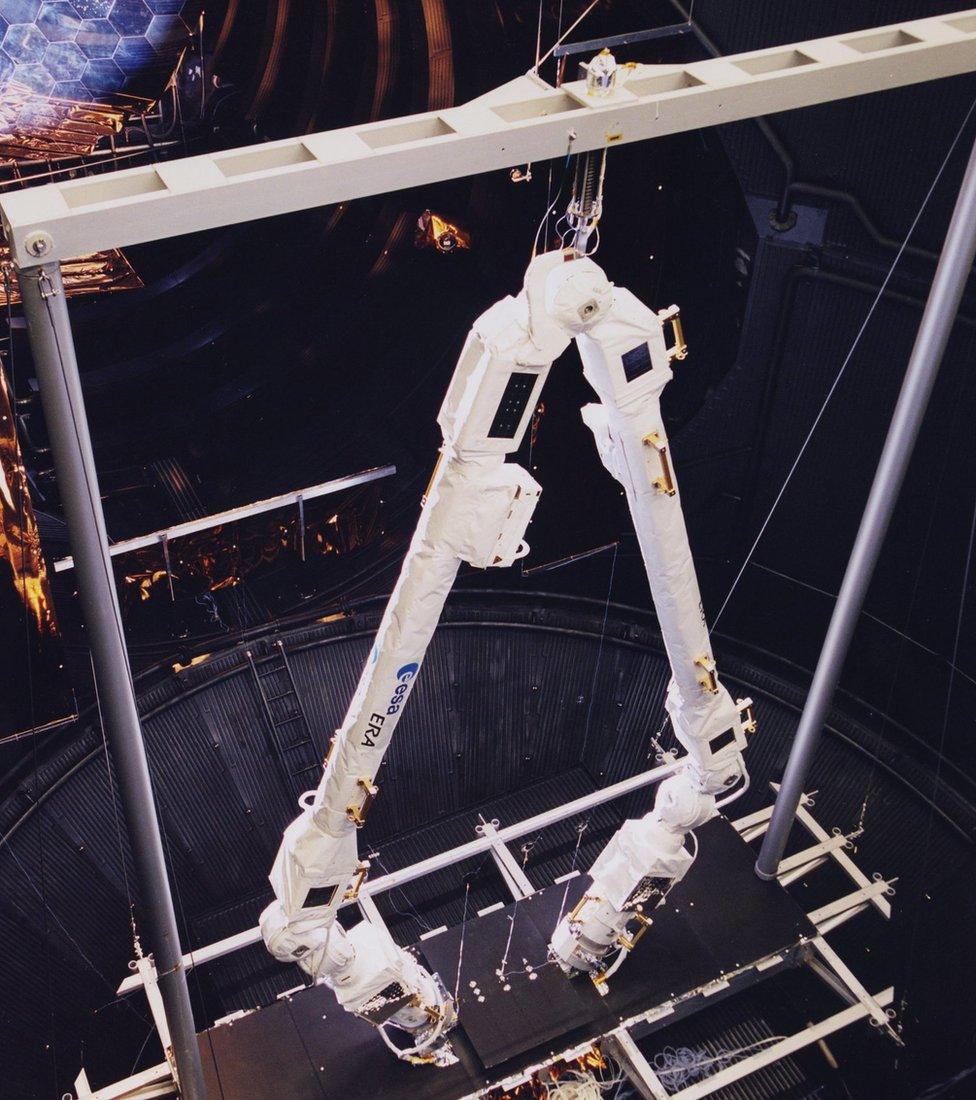Russian module mishap destabilises International Space Station
- Published

Nauka (centre) joined the ISS high above the border between Mongolia and China
The International Space Station (ISS) was destabilised after engines of a newly arrived Russian module inadvertently fired up.
"Mission control teams corrected the action and all systems are operating normally," US space agency Nasa said., external
This was done by activating thrusters on other modules of the ISS. An investigation is now under way.
US and Russian officials stressed that the seven crew members aboard the space station were never in any danger.
The malfunction happened three hours after the Nauka module docked with the ISS on Thursday, following an eight-day flight from Earth.
Nasa officials said Nauka's jets started firing uncommanded at 12:34 EDT (16:45 GMT) "moving the station 45 degrees out of attitude".
The Russian Zvezda segment and a Progress freighter then responded to push the station back into its correct pointing configuration. The incident was over by 13:29 EDT.
"What we saw today was just an awesome job by the mission control flight teams," said Joel Montalbano, Nasa's ISS programme manager.
"Those guys were rock stars again and got us back in attitude control. That also shows you what a robust vehicle we have, and our ability to take these contingencies, recover from them and move on," he told reporters.
Communications with the ISS crew were lost for two periods, of four minutes and seven minutes, during the incident. However, the US agency said that the astronauts were safe. They "really didn't feel any movement", it added.
Allow X content?
This article contains content provided by X. We ask for your permission before anything is loaded, as they may be using cookies and other technologies. You may want to read X’s cookie policy, external and privacy policy, external before accepting. To view this content choose ‘accept and continue’.

The mishap forced Nasa and Boeing to push back Friday's uncrewed test flight of Boeing's Starliner capsule, a vehicle intended to carry astronauts in the future.
"We wanted to give the ISS programme time to assess what had happened today, to determine the cause and make sure that they were really ready to support the Starliner launch," explained Steve Stich, the manager of Nasa's commercial crew programme.
"Right now the earliest opportunity would be Tuesday, 3 August, which would be a 13:20 EDT (17:20 GMT) launch.

The delay for Nauka has also affected the European robotic arm

The 13m-long, 20-tonne Nauka was earlier attached to the rear of the orbiting platform, linking up with the other major Russian segments on the station.
The module should have launched in 2007, but the vessel suffered repeated slips in schedule, in part because of budget difficulties but also because engineers encountered a raft of technical problems during development.
Even after it launched from the Baikonur Cosmodrome in Kazakhstan a week ago, it experienced propulsion issues that required workarounds from controllers in Moscow.
In the end, however, it docked with the station on the planned date.
The new module will result in a significant boost in habitable volume for the ISS, raising it by 70 cubic metres.
Cosmonauts will use the extra space to conduct experiments and to store cargo. They'll also use it as a rest area, and it has another toilet for crew to use on the station.
In addition, the module carries with it a large robotic arm (ERA) supplied by the European Space Agency (Esa).
This 11m-long device will be able to operate all around the Russian end of the ISS. With the aid of an "elbow" joint, it will shift position by moving hand over hand.
Nauka's installation comes just as Russia has been questioning its future role in the ISS project.
Moscow officials recently warned about the more-than-20-year age of some of their on-orbit hardware and intimated the country could pull out of the station in 2025. And Russia has shown little interest in joining the US-led lunar platform, known as the Gateway, which will be assembled later this decade.